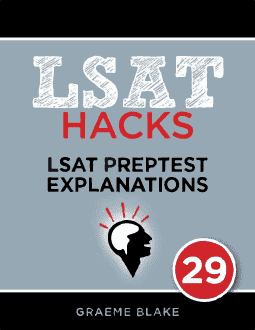QUESTION TEXT: Economist: To the extent that homelessness arises…
QUESTION TYPE: Role in Argument
CONCLUSION: It should not be assumed that the profit motive causes homelessness (to the extent that homelessness arises from a lack of available housing)
REASONING: Private investors will build housing if they can make a profit. It’s unrealistic to expect that investors will take risks if there is no benefit.
ANALYSIS: The sentence in question limits the argument. The economist’s claim is only true if homelessness does arise from a lack of available housing.
It’s similar to saying: “When it is raining you should always carry an umbrella”. You’re only being told what to do if it is raining. We don’t know if we should have an umbrella when it isn’t raining.
Similarly, maybe the profit motive is at fault when homelessness isn’t caused by a lack of housing.
___________
- CORRECT. The economist is not making a claim about homelessness in general. He is making a claim about homelessness caused by a lack of housing.
- Not so. The economist hasn’t said how much homelessness is caused by a lack of housing. It could be a very small part.
- The phrase isn’t evidence. It’s just a statement restricting the argument.
- Close but not quite. It modifies the conclusion and restricts it.
- The economist unfortunately hasn’t told us what to do about homelessness.


The twisted stimulus was a mouthful. I had to reread it a few times, waste time and get aggravated by such a waste of time. Luckily the 4 wrong AC’s were the worst and I was able to get this correctly by POE. Hopefully, such sentences won’t appear in more recent test! It’s a waste of time Q that I will ignore, flag and return after finishing the other Q’s. It comes a surprise bc it’s the second Q, but, lesson learned. :) Thanks for the explanation. It looked like a concession structurally, even though I could not understand what it meant.